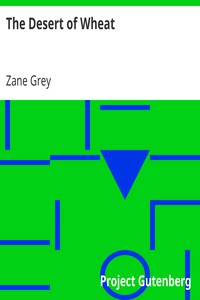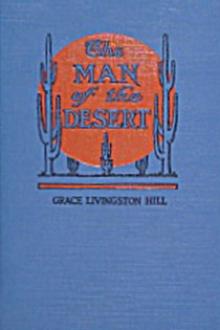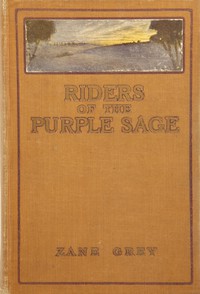The Desert of Wheat, Zane Grey [good non fiction books to read .TXT] 📗

- Author: Zane Grey
Book online «The Desert of Wheat, Zane Grey [good non fiction books to read .TXT] 📗». Author Zane Grey
Then Lenore gazed away across the wheat-fields. The shadows came waving toward her. A stronger breeze fanned her cheeks. The heavens were darkening and low thunder rolled along the battlements of the great clouds.
"Say, Kurt, what do you make of this?" asked Anderson. Lenore, turning, saw her father hold out the little gray cake that Jake had found in the wheat-field.
Young Dorn seized it quickly, felt and smelled and bit it.
"Where'd you get this?" he asked, with excitement.
Anderson related the circumstance of its discovery.
"It's a preparation, mostly phosphorus," replied Dorn. "When the moisture evaporates it will ignite—set fire to any dry substance.… That is a trick of the I.W.W. to burn the wheat-fields."
"By all that's ——!" swore Anderson, with his jaw bulging. "Jake an' I knew it meant bad. But we didn't know what."
"I've been expecting tricks of all kinds," said Dorn. "I have four men watching the section."
"Good! Say, that car turned off to the right back here some miles.… But, worse luck, the I.W.W.'s can work at night."
"We'll watch at night, too," replied Dorn.
Lenore was conscious of anger encroaching upon the melancholy splendor of her emotions, and the change was bitter.
"When the rain comes, won't it counteract the ignition of that phosphorus?" she asked, eagerly, for she knew that rain would come.
"Only for the time being. It 'll be just as dry this time to-morrow as it is now."
"Then the wheat's goin' to burn," declared Anderson, grimly. "If that trick has been worked all over this country you're goin' to have worse 'n a prairie fire. The job on hand is to save this one section that has a fortune tied up in it."
"Mr. Anderson, that job looks almost hopeless, in the light of this phosphorus trick. What on earth can be done? I've four men. I can't hire any more, because I can't trust these strangers. And how can four men—or five, counting me, watch a square mile of wheat day and night?"
The situation looked hopeless to Lenore and she was sick. What cruel fates toyed with this young farmer! He seemed to be sinking under this last crowning blow. There in the sky, rolling up and rumbling, was the long-deferred rain-storm that meant freedom from debt, and a fortune besides. But of what avail the rain if it was to rush the wheat to full bursting measure only for the infernal touch of the foreigner?
Anderson, however, was no longer a boy. He had dealt with many and many a trial. Never was he plunged into despair until after the dread crisis had come to pass. His red forehead, frowning and ridged with swelling blood-vessels, showed the bent of his mind.
"Oh, it is hard!" said Lenore to Dorn. "I'm so sorry! But don't give up. While there's life there's hope!"
He looked up with tears in his eyes.
"Thank you.… I did weaken. You see I've let myself believe too much—for dad's sake. I don't care about the money for myself.… Money! What good will money be to me—now? It's over for me.… To get the wheat cut—harvested—that's all I hoped.… The army—war—France—I go to be—"
"Hush!" whispered Lenore, and she put a soft hand upon his lips, checking the end of that bitter speech. She felt him start, and the look she met pierced her soul. "Hush!… It's going to rain!… Father will find some way to save the wheat!… And you are coming home—after the war!"
He crushed her hand to his hot lips.
"You make me—ashamed. I won't give—up," he said, brokenly. "And when I'm over—there—in the trenches, I'll think—"
"Dorn, listen to this," rang out Anderson. "We'll fool that I.W.W. gang.…It's a-goin' to rain. So far so good. To-morrow you take this cake of phosphorus an' ride around all over the country. Show it an' tell the farmers their wheat's goin' to burn. An' offer them whose fields are already ruined—that fire can't do no more harm—offer them big money to help you save your section. Half a hundred men could put out a fire if one did start. An' these neighbors of yours, some of them will jump at a chance to beat the I.W.W.… Boy, it can be done!"
He ended with a big fist held aloft in triumph.
"See! Didn't I tell you?" murmured Lenore, softly. It touched her deeply to see Dorn respond to hope. His haggard face suddenly warmed and glowed.
"I never thought of that," he burst out, radiantly. "We can save the wheat.… Mr. Anderson, I—I can't thank you enough."
"Don't try," replied the rancher.
"I tell you it will rain," cried Lenore, gaily. "Let's walk out there—watch the storm come across the hills. I love to see the shadows blow over the wheat."
Lenore became aware, as she passed the car, that Nash was glaring at her in no unmistakable manner. She had forgotten all about him. The sight of his jealous face somehow added to her strange exhilaration.
They crossed the road from the house, and, facing the west, had free prospect of the miles of billowy hills and the magnificent ordnance of the storm-clouds. The deep, low mutterings of thunder seemed a grand and welcome music. Lenore stole a look at Dorn,





Comments (0)